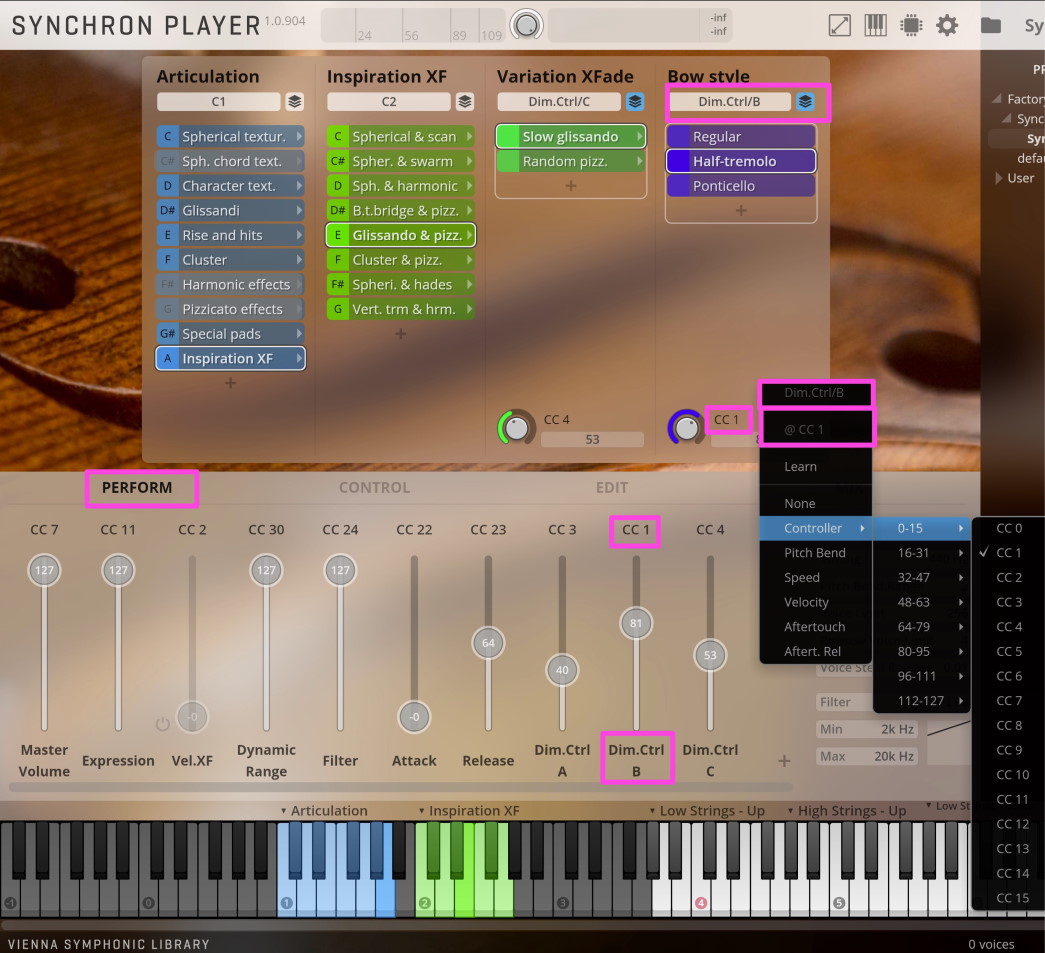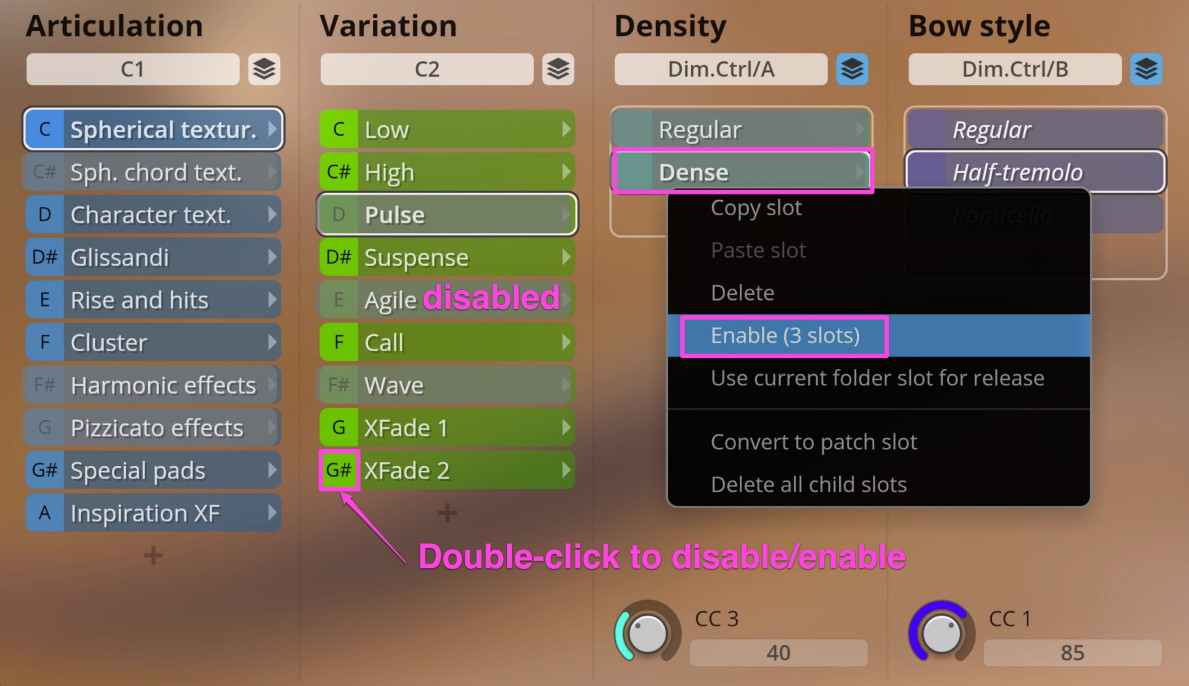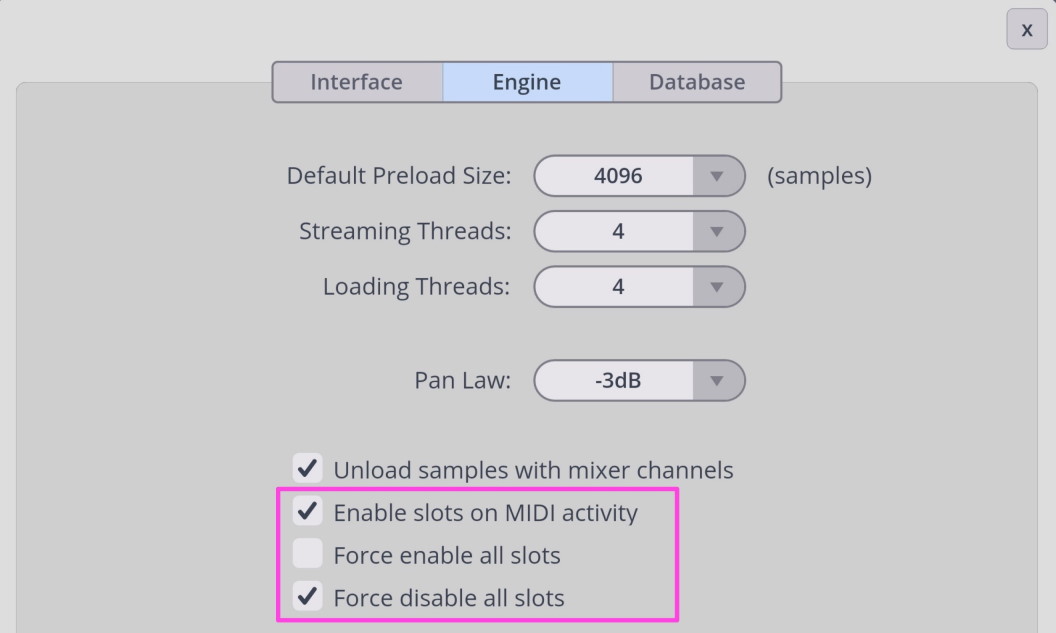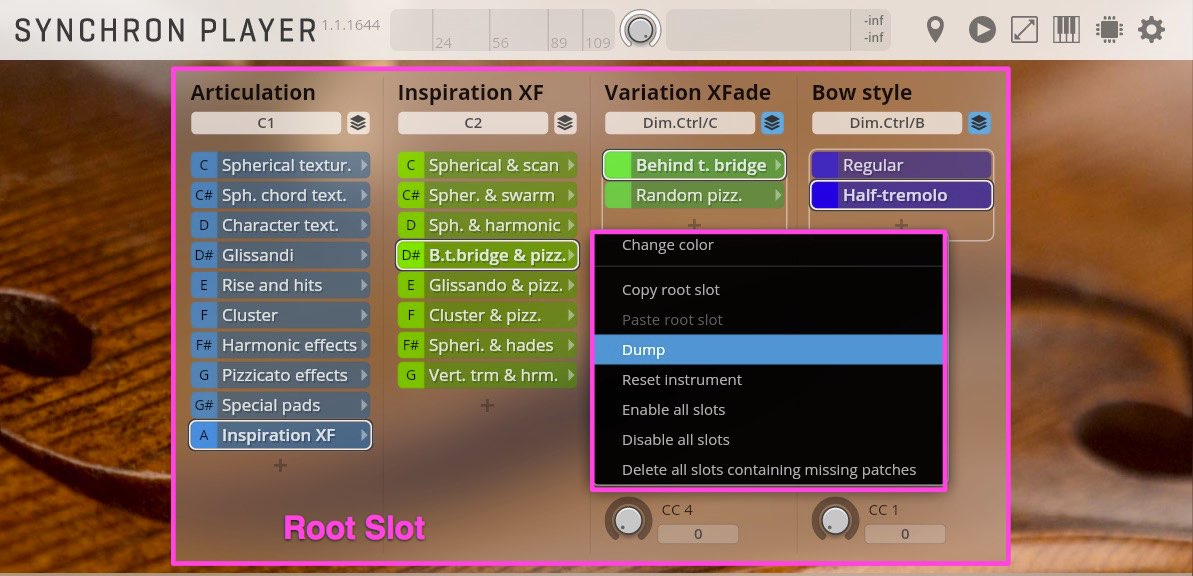Dimension Tree View
The dimension tree view is the centerpiece of Synchron Player. Vertical rows of Slots are called Dimensions. Dimensions can be labeled for better orientation, and factory presets are organized in a consistent way.
The highlighted slots (white frame) show the selected slots in each dimension, and you are always reading the structure from left to right, until you get to the Patch Slot that contains the played articulation.
Depending on the Synchron Player engine settings , presets may load with disabled slots (greyed out) , so that no samples are loaded, initially. Double-click the field to the left of the slot name to load the samples contained in a slot.

Dimensions

The controller assigned to each dimension can be chosen from various options: Notes (chromatic), White Notes (w), Program Change and Dimension Controls (see below).
Each dimension can be labeled, and keyswitches will be displayed in the color of the dimension on the keyboard below and in the key info window.
Dimension Controllers
If 1 of the 8 available Dimension Controllers (labeled A-H) is selected for a Dimension, you can see the control knob and the assigned MIDI Controller at the bottom of the Dimension.
Click in the field to see the available sources you can assign for the selected Dimension Control:
- Controller (MIDI CC)
- Pitch Bend
- Speed
- Velocity
- Aftertouch
- Aftertouch Release
All assigned controls are also listed in the PERFORM Tab below the tree view, where you can additionally manipulate each controller curve.

Parallel Mode
The symbol next to the Controller switches Parallel Mode on and off.
With Parallel Mode off (white), the slots of a Dimension will be accessible separately.
With Parallel Mode on (blue), you can use the assigned controller to crossfade through the slots.

There is another option available in the EDIT tab for this important feature:

Choose whether you want the selected slot to crossfade with other cells (XFade) or whether it should always stay available (Mix).
Tip
With Synchron FX Strings I, you will minimize the streaming-load a lot if you switch off Parallel Mode whenever it is not needed.
Folder Slots and Patch Slots
Folder Slots contain further slots and are marked with a small arrow (see below).
Patch Slots contains the articulation you hear.
As they are related, folder slot / parent slot will be called parent slot / child slot .

To add another slot to a dimension , click the + sign below the last slot.
To create a new dimension, click the + sign that appears when you hover over a patch slot. This will also convert a patch slot to a folder slot.

Enable/Disable Slots
Factory Presets are saved with disabled slots (greyed out), so that no samples are loaded, initially.
You can load the samples contained in a slot (and all child slots) by double clicking the colored field to the left of the name or via slot context menu (right-click on a slot to see it).


Additionally, you can decide whether you want to force enabled cells for all presets and patches you are loading, in the Synchron Player Settings.
Slot Context Menu
Copy slot: Copy slot and all contained child slots to clipboard
Paste slot: Paste slot and all contained child slots from clipboard
Delete: Delete selected slot and all contained child slots
Enable (number of affected slots): Load samples of selected slot and child slots
Use current folder for release: Use the Release samples of the current folder as a release sample.
(Folder Slot only) Convert to patch slot: Transform selected folder slot to patch slot.
(Folder Slot only) Delete all child slots: Delete child slots of the selected folder slot.
Root Slot Context Menu

Change color: Select a color for the selected dimension.
Copy root slot: Copy the root slot, which contains the whole tree structure, into clipboard.
Paste root slot: Paste the root slot, which contains the whole tree structure, from clipboard.
Dump: Sends the current slot selection to your sequencer.
Reset instrument: Resets the whole instrument.
Enable all slots: Affects all slots.
Disable all slots: Affects all slots.
Delete all slots containing missing patches: Great for preset creation, this feature deletes all slots that contain a patch that cannot be loaded or are not available for a specific instrument.